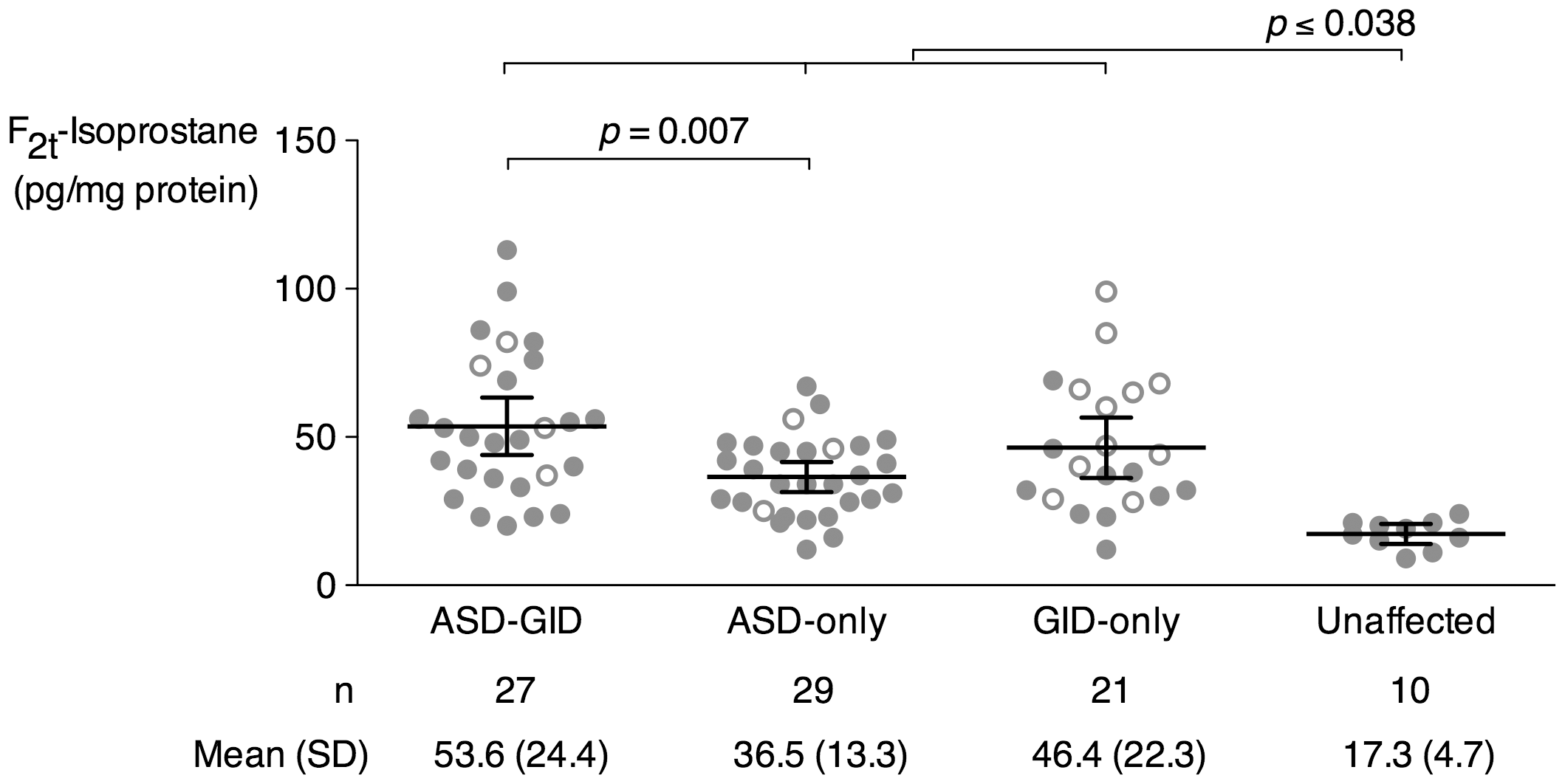Adult ADHD: Elevated Rates Observed In Individuals With Autism And Intellectual Disabilities

Table of Contents
The Complex Relationship Between ADHD, Autism, and Intellectual Disabilities
Understanding the elevated rates of Adult ADHD in individuals with autism and intellectual disabilities requires exploring the intricate connections between these conditions.
Shared Neurobiological Factors
Research suggests that overlapping neurological pathways and genetic predispositions may contribute to the co-occurrence of ADHD, autism, and intellectual disabilities.
- Neurotransmitter Imbalances: Dysregulation of neurotransmitters like dopamine and norepinephrine, crucial for attention and executive function, is implicated in both ADHD and ASD. Similar imbalances may also play a role in intellectual disabilities.
- Brain Structure Differences: Studies have identified structural variations in certain brain regions, such as the prefrontal cortex, in individuals with ADHD, autism, and intellectual disabilities. These variations can affect cognitive functions related to attention, impulsivity, and social interaction.
- Genetic Research Findings: Ongoing genetic research is uncovering shared genetic markers and pathways that increase susceptibility to both ADHD and ASD, potentially explaining the increased likelihood of co-occurrence. Specific genes involved in neuronal development and synaptic transmission are being investigated.
Diagnostic Challenges
Differentiating the symptoms of ADHD from those of autism or intellectual disabilities, particularly in adults, poses significant challenges.
- Masking of ADHD Symptoms: Individuals with autism may develop coping mechanisms to mask their ADHD symptoms, leading to underdiagnosis. This masking can make it difficult for clinicians to recognize the presence of ADHD.
- Challenges in Obtaining Reliable Self-Reports: Difficulties with communication and self-awareness common in autism and some intellectual disabilities can hinder accurate self-reporting of ADHD symptoms, making reliance on behavioral observations crucial.
- Potential for Misdiagnosis: Overlapping symptoms can lead to misdiagnosis. For instance, inattentiveness in autism might be mistaken for ADHD inattentiveness, or hyperactivity in ADHD might be misattributed to anxiety or sensory sensitivities in autism. Careful differential diagnosis is vital.
Increased Prevalence of ADHD in Adults with Autism and Intellectual Disabilities
Numerous studies have demonstrated a significantly elevated prevalence of ADHD among adults with autism and intellectual disabilities.
Statistical Evidence
Research consistently indicates a higher rate of ADHD in this population compared to the general adult population.
- Study 1: A meta-analysis of multiple studies found that the prevalence of ADHD in adults with autism was significantly higher than in the general population (cite specific study and percentage).
- Study 2: Another study (cite specific study and percentage) reported a similarly elevated rate of ADHD among adults with intellectual disabilities.
- Methodological Considerations: It’s important to consider the methodologies used in these studies, including diagnostic criteria and sample characteristics, as they can influence the reported prevalence rates. Limitations might include relying on retrospective diagnoses or varying diagnostic tools across studies.
Implications for Clinical Practice
Recognizing the co-occurrence of ADHD, autism, and intellectual disabilities is crucial for improving diagnostic accuracy and treatment planning.
- Comprehensive Assessments: A thorough assessment should incorporate multiple data sources, including parent/caregiver reports, teacher reports (if applicable), and behavioral observations, along with standardized diagnostic tools tailored for adults with these conditions.
- Tailored Interventions: Treatment plans must be individualized to address the unique symptom profile of each individual, taking into account the interplay of ADHD, autism, and intellectual disabilities. A "one-size-fits-all" approach is unlikely to be effective.
Treatment Strategies for Co-occurring ADHD, Autism, and Intellectual Disabilities
Effective management of co-occurring ADHD, autism, and intellectual disabilities requires a multi-faceted approach.
Medication Management
Medication can be a valuable tool in managing ADHD symptoms, but careful consideration is needed for individuals with autism or intellectual disabilities.
- Stimulant and Non-Stimulant Medications: Stimulants (e.g., methylphenidate, amphetamine) and non-stimulants (e.g., atomoxetine) can be effective in reducing ADHD symptoms.
- Side Effects and Monitoring: Close monitoring is essential due to the potential for side effects, which may be amplified or differently manifested in individuals with autism or intellectual disabilities. Careful titration of medication is crucial.
- Medication Choice: The choice of medication should be tailored to the individual's specific needs and potential interactions with other medications they might be taking.
Behavioral Therapies and Support Services
Behavioral interventions play a crucial role in supplementing medication and addressing broader challenges.
- Cognitive Behavioral Therapy (CBT): CBT can help individuals develop coping mechanisms for managing impulsivity, inattention, and emotional regulation.
- Social Skills Training: Social skills training can improve social interaction and communication, which are often affected by both ADHD and autism.
- Support Services: Access to support services, such as occupational therapy, speech therapy, and educational support, can address specific needs and improve overall functioning.
Conclusion
The significantly elevated prevalence of Adult ADHD in adults with autism and intellectual disabilities highlights the complex interplay of these conditions and underscores the need for comprehensive assessment and tailored interventions. Recognizing this co-occurrence is crucial for accurate diagnosis and the development of effective treatment plans that address the unique needs of each individual. If you suspect Adult ADHD, especially if it co-occurs with autism or intellectual disabilities, consult a healthcare professional for accurate diagnosis and treatment. You can find more information and support through organizations dedicated to ADHD, autism, and intellectual disabilities (include links to relevant organizations here).

Featured Posts
-
 Nba Fines Anthony Edwards 50 000 For Vulgar Remarks To Fan
Apr 29, 2025
Nba Fines Anthony Edwards 50 000 For Vulgar Remarks To Fan
Apr 29, 2025 -
 Wrexhams Promotion Ryan Reynolds Joins The Celebration
Apr 29, 2025
Wrexhams Promotion Ryan Reynolds Joins The Celebration
Apr 29, 2025 -
 Supergirl Milly Alcock Joins Julianne Moores Cult In Netflixs Sirens
Apr 29, 2025
Supergirl Milly Alcock Joins Julianne Moores Cult In Netflixs Sirens
Apr 29, 2025 -
 Alberto Ardila Olivares Y La Consistencia En El Marcador
Apr 29, 2025
Alberto Ardila Olivares Y La Consistencia En El Marcador
Apr 29, 2025 -
 Los Angeles Fires Renters Face Exploitation Claims Reality Tv Star
Apr 29, 2025
Los Angeles Fires Renters Face Exploitation Claims Reality Tv Star
Apr 29, 2025
